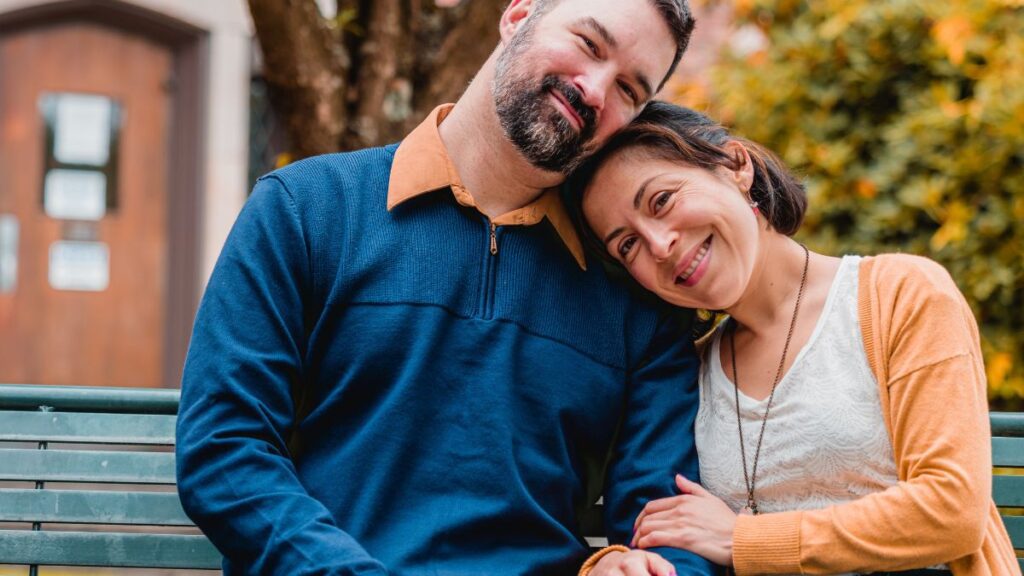Forgiveness is a difficult concept, especially when it comes to relationships. When your partner makes a mistake or hurts you in some way, it can be challenging to let go of the pain and move forward. However, forgiveness is crucial for the health and longevity of any relationship.
But how do you forgive your partner for their mistakes? It’s not an easy process, but with patience and understanding, it is possible. In this article, we will explore steps on how to forgive your partner for their mistakes.
Understanding Forgiveness
One of the biggest misconceptions about forgiveness is that it means forgetting or condoning the hurtful action. However, this is far from the truth. Forgiveness is not about excusing the behavior but rather choosing to let go of negative emotions towards our partner.
Forgiving someone doesn’t mean that you have to continue with the same dynamics as before. It means acknowledging the pain caused by their actions but deciding to move past it and work towards building a healthier future together.

Moreover, forgiveness is not a one-time event; it is an ongoing process. It takes time and effort to fully forgive someone, and it may involve multiple conversations and instances of forgiveness. Therefore, it is essential to understand that forgiveness requires patience and commitment from both partners.
The Benefits of Forgiveness in a Relationship
Forgiveness holds immense power in healing relationships. When we hold onto grudges, it creates resentment, anger, and bitterness within us, which can seep into other areas of our lives. On the other hand, forgiving our partner allows us to let go of these negative emotions and create space for positive feelings.
Additionally, forgiveness helps in rebuilding trust between partners. When someone has hurt us deeply, it is natural to feel wary and mistrustful towards them. However, when we choose to forgive them, we are giving them the opportunity to regain our trust and rebuild the relationship.
Forgiveness also promotes better communication between partners. It allows both individuals to have honest and open conversations about their feelings, which can lead to a deeper understanding of each other’s perspectives. This, in turn, fosters empathy and compassion towards one another.

Steps to Forgive Your Partner
- Acknowledge Your Emotions: The first step towards forgiveness is acknowledging your emotions and allowing yourself to feel them fully. Understand why you are feeling hurt or angry and what impact it has had on you.
- Communicate with Your Partner: Once you have identified your emotions, communicate them with your partner calmly and respectfully. Be specific about how their actions have affected you and what you need from them to move forward.
- Practice Empathy: Put yourself in your partner’s shoes and try to understand their perspective. Often, there may be underlying reasons for their behavior, and empathy can help you see things from their point of view.
- Set Boundaries: Forgiving someone does not mean that we have to tolerate disrespectful or hurtful behavior. It is essential to set boundaries with our partners and communicate what is acceptable and what is not.
- Let Go of Resentment: Holding onto resentment will only hinder the process of forgiveness. It is important to let go of negative emotions towards your partner and focus on moving forward together.
- Seek Professional Help: If you feel like you are struggling with forgiveness, it is okay to seek professional help. Therapy can provide a safe space for both partners to work through their issues and find ways to rebuild the relationship.

Tips for Maintaining Forgiveness in a Relationship
- Practice Gratitude: Make a conscious effort to appreciate your partner and all the positive aspects of your relationship, especially when you are feeling angry or resentful.
- Let Go of Past Mistakes: Holding onto past mistakes will only create more resentment and hinder the process of forgiveness. Focus on the present and how you can move forward together.
- Be Patient: Forgiveness takes time; it is not an overnight process. It requires patience and understanding from both partners, so be patient with each other’s progress.
- Forgive Yourself: It is also important to forgive yourself for any mistakes you may have made in the relationship. Self-forgiveness can help you let go of any guilt or shame and move forward with a clear mind.
- Communicate Regularly: Communication is key in any relationship, especially when it comes to forgiveness. Make sure to regularly check in with your partner and address any unresolved issues.
What if Forgiveness is Not Possible?
In some cases, forgiveness may not be possible or healthy for the relationship. If your partner continues to hurt you and shows no signs of change or remorse, it may be necessary to reevaluate the relationship. Remember that forgiveness does not mean sacrificing your well-being or tolerating toxic behavior. It is okay to let go of a relationship that is causing more harm than good. After all, true forgiveness also means forgiving yourself for walking away from a toxic situation.

To Sum It Up
Forgiveness is a crucial aspect of any healthy relationship, but it requires effort and understanding from both partners. It takes time to fully forgive someone, and it may involve multiple instances of forgiveness. However, the benefits of forgiveness are immense – it promotes healing, rebuilds trust and communication, and allows for a healthier future together. So, practice empathy, let go of resentment, and communicate openly with your partner to cultivate forgiveness in your relationship. But remember that it is also okay to walk away if forgiveness is not possible. Take care of yourself first and foremost in any relationship dynamic. Keep in mind that forgiveness is a journey, not a destination. Therefore, keep moving forward with love and understanding for yourself and your partner.

